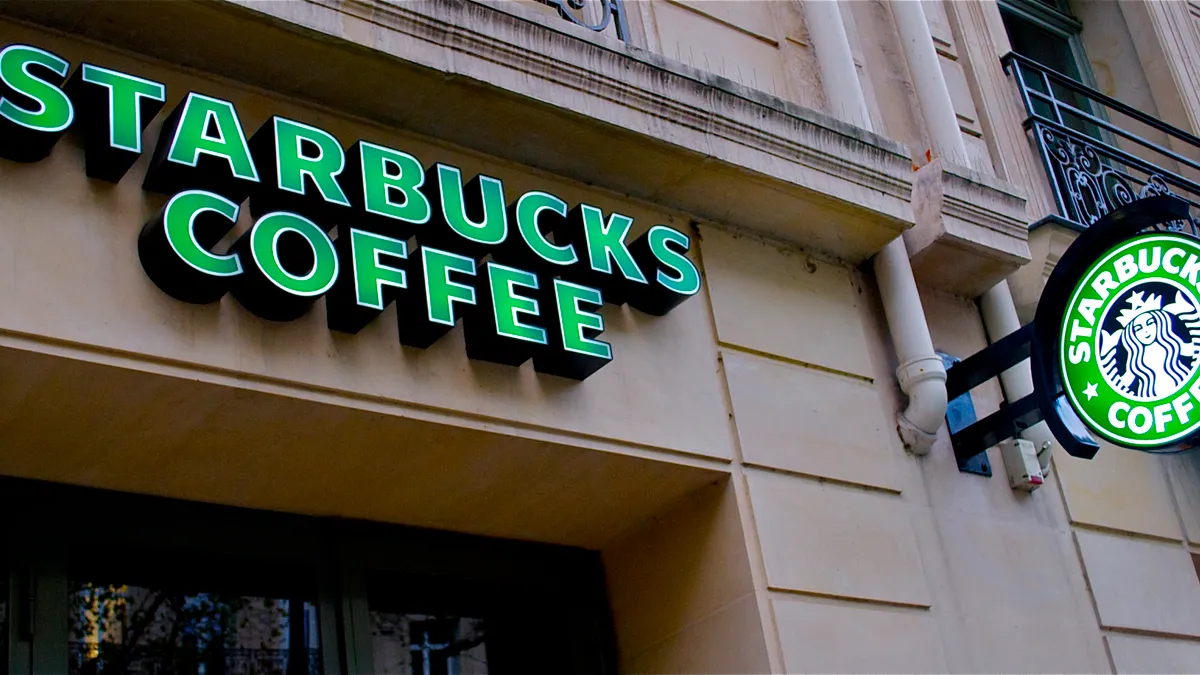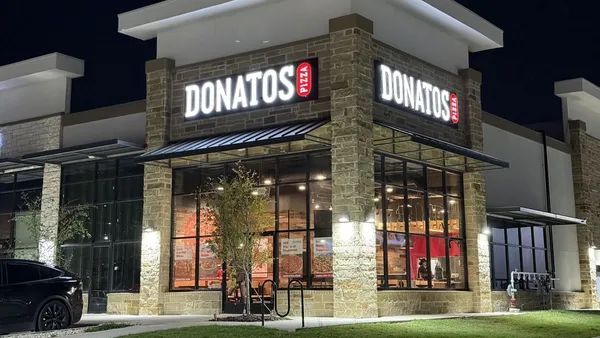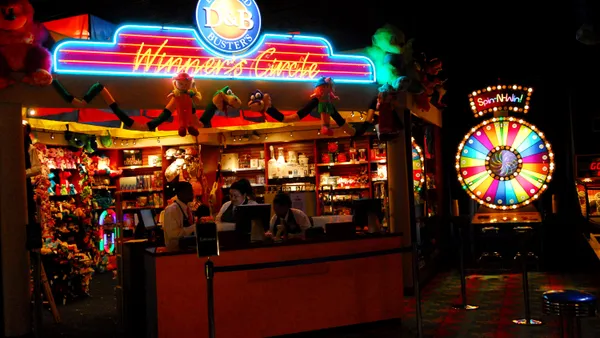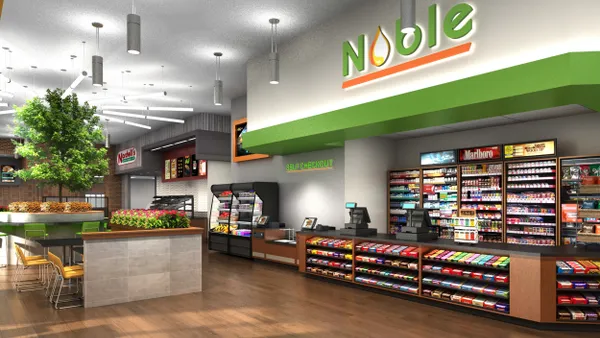Dive Brief:
- Visits to Starbucks decreased by 6.8% following the company's adoption of an open bathroom policy in May 2018, according to a new study from the University of Texas at Dallas Jindal School of Management, Boston College Carroll Study of Management and geospacial data company SafeGraph. The policy allows anyone to sit in Starbucks stores and use the bathroom without purchasing anything.
- The company enacted the policy following public outcry when a manager in Philadelphia called the police to report two black men who asked to use the bathroom without making an in-store purchase.
- The traffic decline was 84% higher for stores near homeless shelters. Also, customers reduced the amount of time they spent in Starbucks stores by 4.2%
Dive Insight:
Starbucks' policy underscores the significant challenge any business faces if it removes incentives to buy products. As the report's authors note, this policy specifically hurt sales.
However, although this study shows that foot traffic has eroded since the policy went into place, Starbucks' quarterly earnings have shown a different picture. Since the policy was enacted in May 2018, the company's fiscal year quarterly comps in the U.S. increased by 1% (Q3 2018), 4% (Q4 2018), 4% (Q1 2019), 4% (Q2 2019), 7% (Q3 2019) and 6% (Q4 2019).
Also, Starbucks is very popular among younger consumers, and the company's open bathroom policy may resonate with that demographic more than others. According to a study by Shandwick, Gen Z prefers companies with corporate social responsibility policies, including companies that oppose poverty.
Still, the policy clearly presents a bit of a paradox for Starbucks. On one hand, it is a goodwill gesture consistent with its social responsibility efforts and its brand promise to provide a "third place" environment. On the other, it could (and has, according to this study) turn off customers who spend money to take advantage of that environment.
Notably, the entire industry is struggling with traffic declines as competition intensifies. Starbucks itself is navigating growing competition from both national chains and local coffee shops, and planned to close 150 underperforming, company-operated U.S stores this year. In other words, the company doesn't have as much ability to overcome traffic declines as it used to.
Still, that doesn't mean this study would incentivize Starbucks to change its policy. Doing so could very well be a bad PR move as well, particularly among its consumers who gravitate to the brand because of its social responsibility work. One of the study's author noted that the results highlight the difficulty companies can have when trying to engage socially responsible behavior, but such behavior has always been a part of Starbucks' DNA.













